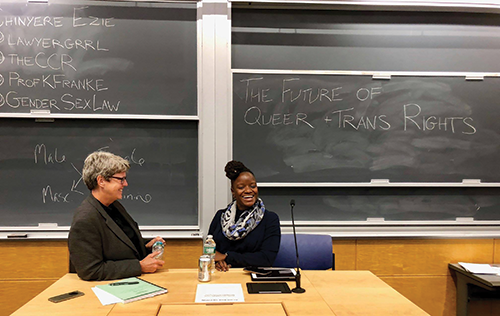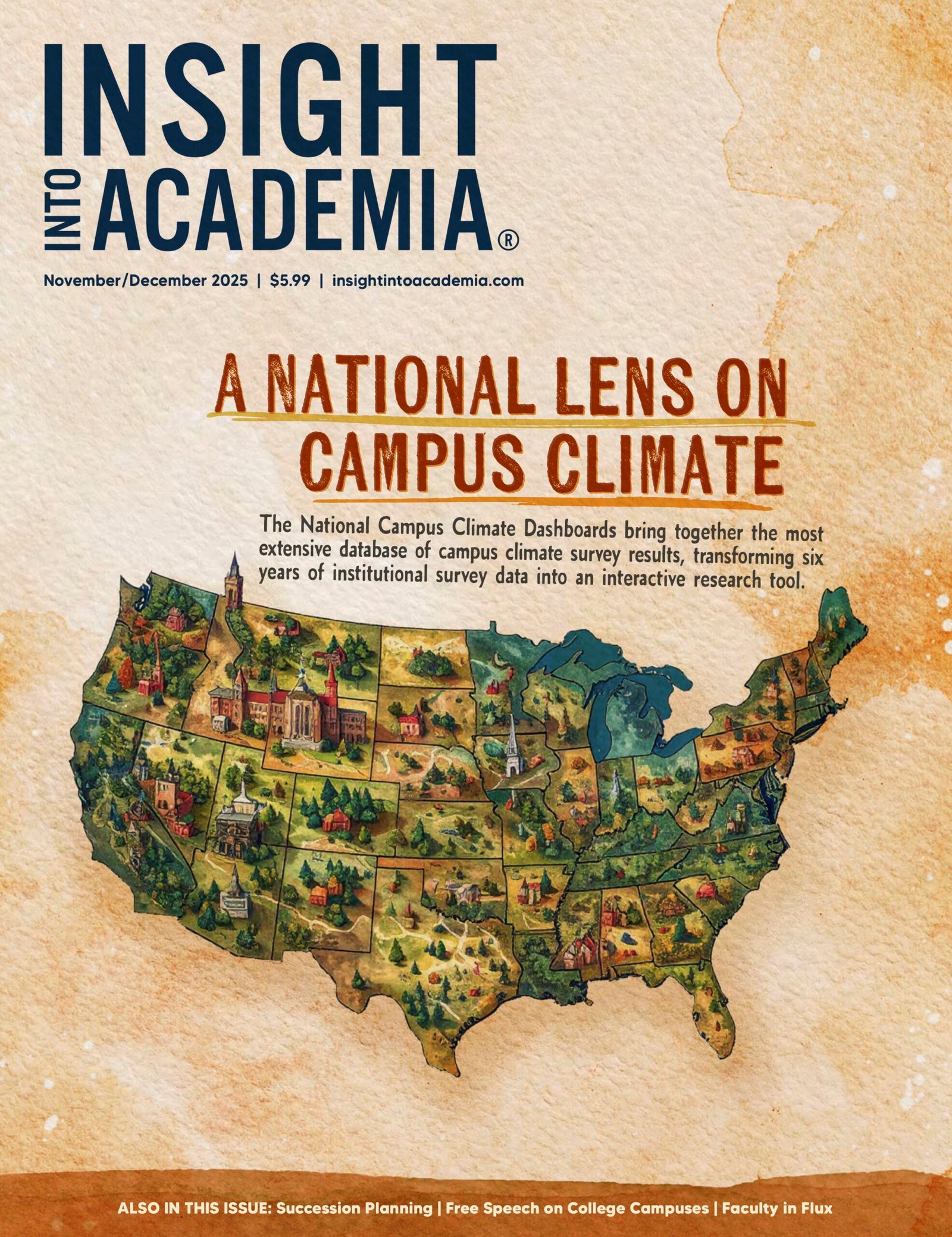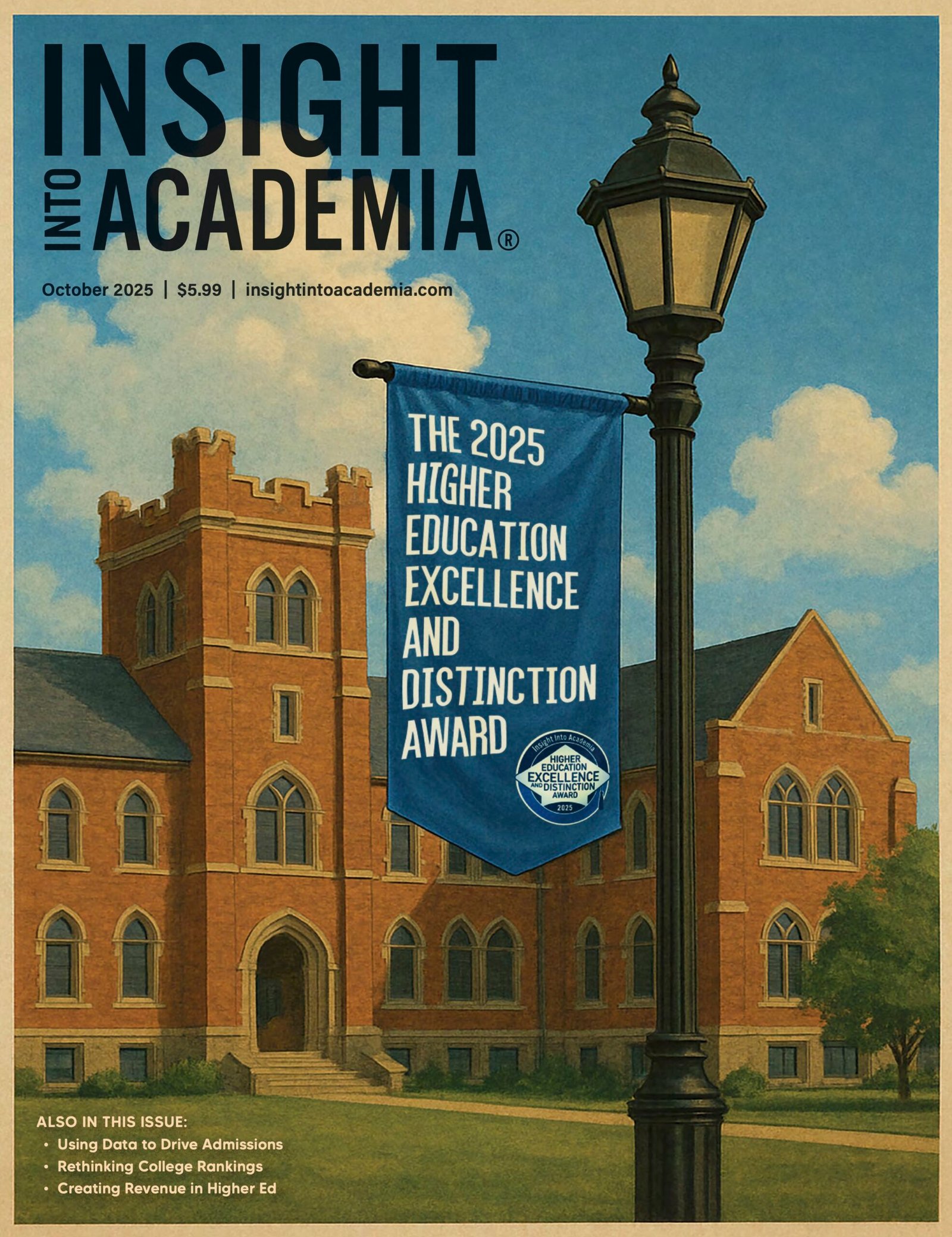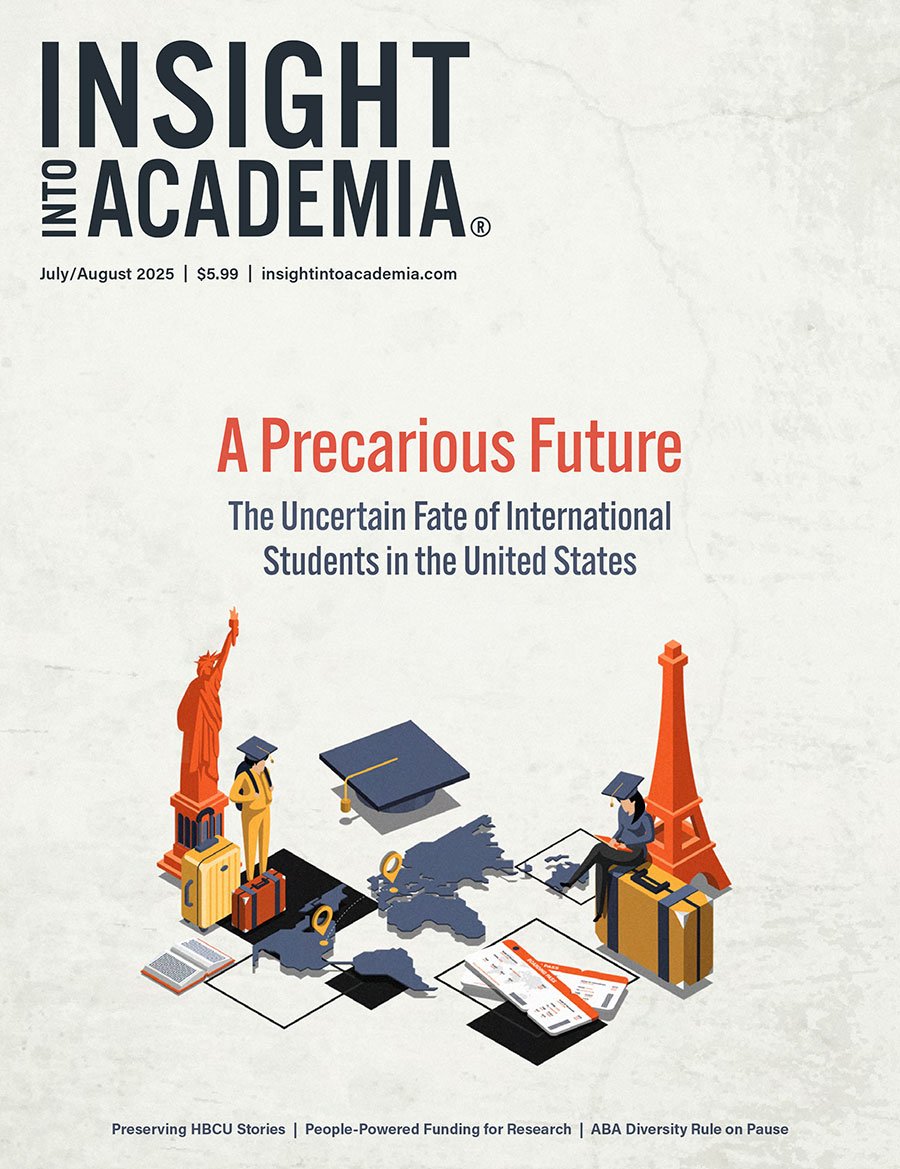
The emergence of a public LGBTQ community in the United States is in many ways a legal story, according to Michael Boucai, JD, an associate professor at the University of Buffalo School of Law in New York. “The criminal illegality of homosexuality gave any kind of reform work on LGBTQ issues a legal focus,” he says.
While the beginning of the 21st century has produced some significant gains in LGBTQ rights — most notably, the right to marry — the community still faces legal challenges in almost every facet of their lives, from work to family to healthcare.
[Above: Professor Katherine Franke, left, with Columbia Law alumna Chinyere Ezie, a staff attorney with the Center for Constitutional Rights. Ezie gave a presentation as part of the Center for Gender and Sexuality Law’s Fall 2019 series, “On The Front Lines of Gender Justice.”]
President Donald Trump’s administration has seriously compounded these issues, most recently announcing plans to rescind nondiscrimination policies intended to protect the rights of transgender and other LGBTQ people by allowing healthcare workers to deny services to them based on religious grounds.
Law schools across the country are training students to combat legal discrimination against the LGBTQ community in whatever area they practice, as well as to broaden their vision for LGBTQ equality under the law, especially as it pertains to those with intersectional identities.
Almost every legal specialization includes opportunities to improve LGBTQ rights, and many schools incorporate this lens into their established curriculum. A growing number provide classes specifically concentrating on legal issues pertaining to gender and sexuality. The legal profession typically refers to this area of work as LGBT law.
 The University of California, Los Angeles (UCLA) School of Law offers a course called “Sexuality and the Law,” which covers a slew of issues, from the decriminalization of gay sex to the first laws that established basic rights. Other courses across the country concentrate on policies affecting the AIDS epidemic, how gender determines outcomes in the criminal justice system, and more.
The University of California, Los Angeles (UCLA) School of Law offers a course called “Sexuality and the Law,” which covers a slew of issues, from the decriminalization of gay sex to the first laws that established basic rights. Other courses across the country concentrate on policies affecting the AIDS epidemic, how gender determines outcomes in the criminal justice system, and more.
According to the LGBT Bar Association’s 2019 Law School Climate Survey, 50 out of 67 of all American Bar Association (ABA)-accredited law schools offer courses on LGBT law. Meanwhile, 87 out of 100 respondents to a 2018 survey conducted by the Law School Admission Council (LSAC) said they offered LGBT law courses.
A few schools have put sexuality and gender issues at the forefront of their educational offerings, establishing themselves as top destinations for students and faculty who want to specialize in LGBT law.
The Williams Institute at UCLA School of Law
Founded in 2001, the Williams Institute is a think tank designed to provide empirical research about LGBTQ individuals with the goal of informing policy. The institute also plays a major role in building young lawyers’ expertise and has served as a training ground for academics who want to teach this field of law at other universities across the country.

Much of the institute’s early research centered on providing a reliable demographic portrait of LGBTQ individuals, says Brad Sears, JD, UCLA’s associate dean of public interest programs and the institute’s David Sanders Distinguished Scholar of Law and Policy as well as its founding executive director.
“We realized that myths and stereotypes about LGBTQ people were determinative for judicial opinions and legislations. Without rigorous research to counter those stereotypes, we weren’t going to advance in [either] arena,” he says.
In the nearly two decades since it was formed, the institute has met its goal of helping to further LGBTQ rights. As the fight for marriage equality made its way through the courts, the institute’s studies were repeatedly cited in numerous cases, including Obergefell v. Hodges, the landmark Supreme Court civil rights case.
More recently, some of the institute’s summer fellows have documented discrimination as evidence for the necessary passage of the Equality Act, a federal law that passed the U.S. House of Representatives and is awaiting consideration in the Senate. It would amend Title VII of the Civil Rights Act of 1964 to explicitly prohibit discrimination on the basis of sexual orientation and gender identity.
In terms of educational opportunities for young lawyers, the Williams Institute is home to the Dukeminier Awards Journal of Sexual Orientation and Gender Identity Law, which hosts an annual writing competition open to all students enrolled in ABA-accredited law schools. The competition is an opportunity for law students to conduct their first scholarly research in LGBT law.

The institute also hosts a national moot court competition every year, with over 40 teams competing annually, according to Sears. In recent years, students have presented cases about the legality of religious exemptions to Title VII as well as free speech issues surrounding LGBTQ issues in schools, he says.
In addition to the educational opportunities at the Williams Institute, UCLA School of Law offers a Master of Laws degree with a specialization in law and sexuality, including coursework in HIV AIDs law, international human rights and sexuality, and more. This program is primarily geared toward international students. “We’ve had students come from all over the world.— Colombia, Chile, Iran, Vietnam, South Africa — and then return to their home countries and work on LGBTQ issues,” Sears says.
Gender and Sexuality Law Center and Clinic at Columbia Law School
Columbia Law School in New York has a history of attracting students and faculty who are passionate about gender and sexuality issues. Capitalizing on this history, Professor Katherine Franke, JSD, JD, founded Columbia Law’s Center for Gender and Sexuality Law in 2004. The purpose of the center, she says, is to expand upon the widespread interest at the school, with the hope of eventually attracting more law students specifically interested in pursuing the field.

Franke also wanted to create a space for the many Columbia Law alumni who were leading successful careers in LGBT law to return and share their expertise as adjuncts, speakers, and student mentors.
Like the Williams Institute, the center builds students’ skills and knowledge in the field through multiple publication opportunities, including the Columbia Journal of Gender and Law, open for submissions by first-year law students as well as upperclassmen.
Another publication is Gender and Sexuality Law Online, a website where lawyers-in-training can publish work about gender and sexuality issues that a print journal might not have accepted. There’s also a blog where students can discuss LGBTQ legal issues in a more informal way.
The center offers an official certification in the study of gender and sexuality law. To earn this credential, students must take several classes in LGBT law and write a master’s thesis on a legal issue pertaining to sexuality and gender.
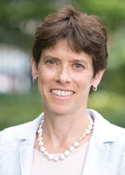
Professor Suzanne Goldberg, JD, an LGBT law litigator who leads the center, emphasizes its impact on building a community of people interested in these legal issues, both inside and outside of Columbia Law School.
“Students come together with other students, faculty, and practicing lawyers and study how profoundly the law has shaped policies and practices around sexuality and gender,” she says.
Columbia Law School is also home to a Sexuality and Gender Law Clinic. Founded in the fall of 2006, it is the oldest clinic in the country staffed by a full-time faculty member. It has played an important role in more deeply connecting legal work around sexuality and gender, Goldberg says — two domains that weren’t always so closely linked.
Students typically participate in the clinic for one semester, building their skills in a seminar class while working on self-selected projects such as representing asylum seekers who have fled their home countries due to persecution for their LGBTQ status or writing amicus briefs relevant to cases affecting LGBTQ individuals.
During the class, Goldberg focuses on oral and written communication skills, collaboration, and conducting interviews with clients who may have traumatic histories and who are concerned about revealing their LGBTQ identity.
More than 100 students have participated in the clinic since its founding. Graduates have helped cities enact laws that allocated benefits to same-sex partners prior to the legalization of same-sex marriage, and they have drafted a report in conjunction with the New York City Human Rights Commission on the prevalence of sexual harassment.
Columbia Law Center also offers the Law, Rights, and Religion Project, founded and directed by Franke. The goal of the project is to advocate for a balance between religious liberty and other fundamental rights, including LGBTQ rights. Work there takes the form of writing policy papers and amicus briefs as well as analyzing proposed legislation, among other efforts.
“I started it [in 2013] when I could see that the backlash against marriage equality would take the form of [religious] exemptions,” Franke says. However, once Trump took office, it became clear to her that those on the political left were also going to claim religious exemptions to protest some of the administration’s policies. For instance, some immigration rights activists claimed religious liberty when they were sued for providing food to migrants on the border.
Franke’s goal is to bring religious liberty advocates together with LGBTQ advocates so they can understand how they’re affecting each other across movements. She believes this work is not only fundamentally important to gay and transgender people, but also to other underrepresented groups, such as people of color.
“I believe that the longer-term goal of some of the more extreme right-wing evangelicals who are making [the religious liberty] argument is to use LGBTQ rights to really unravel anti-discrimination law in general,” she says. “There’s a lot at stake.”
Tulane Law School and Georgetown Law School
Other noteworthy contributions to LGBT law include Tulane Law School’s Journal of Law and Sexuality: A Review of Sexual Orientation and Gender Identity in the Law, founded in 1989 and first published in 1991. Tulane’s website states the journal was “the first … student-edited law review in the country devoted solely to covering legal issues of interest to the LGBT community.”
An official publication of the LGBT Bar Association, the journal encompasses a wide range of legal fields, including constitutional, military, and family law.

Georgetown Law School also places an emphasis on LGBT law. In the school’s Human Rights Fact-Finding project-based practicum, law students participate in a weekly seminar and gain the skills to conduct a human rights investigation from start to finish. The course has recently allowed students to travel to Guyana and El Salvador to study discrimination against LGBTQ communities in those countries.
LGBT law is a focal point of Georgetown Law’s career office for individuals focused on the public interest. Morgan Lynn-Alesker, JD, a former legal services attorney who worked with LGBTQ survivors of domestic and sexual violence, serves as an associate director at the Office of Public Interest and Community Service.
 For schools that want to improve their offerings in the field of LGBT law, Franke suggests introducing an LGBTQ lens into traditional law courses because the breadth of legal issues affecting LGBTQ individuals is so expansive. Another option is to hire an adjunct to teach a course about LGBT law. “There are plenty of experts in every community who could come in and teach that class,” she says.
For schools that want to improve their offerings in the field of LGBT law, Franke suggests introducing an LGBTQ lens into traditional law courses because the breadth of legal issues affecting LGBTQ individuals is so expansive. Another option is to hire an adjunct to teach a course about LGBT law. “There are plenty of experts in every community who could come in and teach that class,” she says.
The rewards of teaching and practicing LGBT law are manifold, Boucai says. “The struggle over gay [and gender identity] rights is the defining civil rights issue of our time,” he explains. What’s more, he says “these legal [issues] end up translating into everyday changes to how people think and act. It’s a clear example of the longstanding feminist idea that the personal is political.”
Ginger O’Donnell is a senior staff writer for INSIGHT Into Diversity. This article ran in the July/August 2019 issue.


